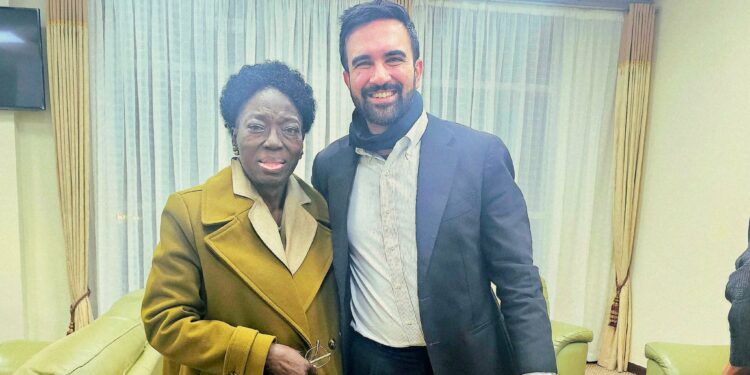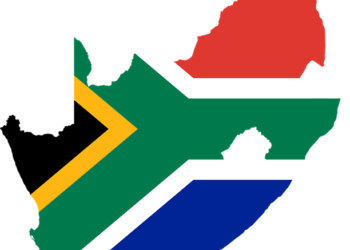In a twist that blends international diplomacy with domestic political drama, Uganda’s 1st Deputy Prime Minister Rebecca Kadaga has extended warm congratulations to Zohran Mamdani following his historic win as New York City’s mayor on November 4, 2025. Mamdani, a Ugandan-born progressive Democrat, defeated former Governor Andrew Cuomo in a heated race, becoming the first Muslim and South Asian to lead the iconic metropolis often dubbed the “capital of capitalism.” Yet, this gesture of national pride from Kadaga arrives just months after a controversial photo of the two together ignited backlash in the U.S., highlighting stark contrasts in values and raising questions about selective amnesia in global politics.
The context traces back to July 2025, when Mamdani, then a state assemblyman and mayoral candidate, visited his ancestral homeland in Uganda’s Busoga region for family celebrations. During the trip, he encountered Kadaga at Entebbe International Airport in what his campaign described as a spontaneous meeting. Photos of the pair smiling together quickly went viral, drawing sharp criticism from Mamdani’s opponents and LGBTQ+ advocates. Kadaga, a former Speaker of Uganda’s Parliament, has long been a prominent figure in the country’s anti-LGBTQ+ movement. In 2012, she famously vowed to pass the Anti-Homosexuality Bill as a “Christmas gift” to its supporters, a measure that initially proposed the death penalty for certain homosexual acts before being amended to life imprisonment.
Although the bill was struck down on procedural grounds in 2014, Kadaga’s advocacy cemented her reputation as a staunch opponent of gay rights, with critics labeling her actions as fueling violence and discrimination against Uganda’s LGBTQ+ community.
The uproar in the U.S. was swift and unforgiving. Andrew Cuomo, Mamdani’s primary rival, seized on the images, accusing him of hypocrisy given Mamdani’s progressive platform that includes strong support for LGBTQ+ rights. “If he’s smiling, he’s lying,” Cuomo quipped in a statement, questioning how a candidate could claim ignorance of Kadaga’s well-documented history.
Media outlets amplified the scandal, with some calling it a “cringeworthy” moment that exposed potential blind spots in Mamdani’s foreign ties. The controversy even surfaced in the final mayoral debate, where Mamdani defended himself amid boos from some audience members.
In response to the backlash, Mamdani issued a clarifying statement, emphasizing the encounter’s impromptu nature. “I didn’t know much about Kadaga and her position on homosexuals; otherwise, I would have reconsidered posing for photos with her,” he said, framing the incident as an unfortunate airport run-in during a personal family visit.
Skeptics, however, pointed to Mamdani’s family connections—his father, a professor at Makerere University in Uganda, reportedly knew Kadaga for years—arguing that ignorance was implausible for a politically astute figure like Mamdani. The episode became a flashpoint in the campaign, intersecting with broader attacks on Mamdani’s associations and testing his appeal among New York’s diverse voter base.
Fast-forward to November 5, 2025, and the narrative shifts dramatically. With Mamdani’s victory secured—garnering widespread praise from global leaders like London Mayor Sadiq Khan, who hailed it as “hope over fear”—Kadaga joined the chorus of well-wishers. In a post on social media, she congratulated Mamdani, invoking Uganda’s “Pearl of Africa” moniker and expressing pride in his achievement as a son of the diaspora.
“Congratulations, Zohran Mamdani and greetings from Uganda,” she wrote, referencing his July visit and framing his win as a beacon for Ugandans abroad.
This turnaround has sparked mixed reactions. In Uganda, responses range from celebratory—highlighting economic disparities, with New York City’s $1.84 trillion GDP dwarfing Uganda’s $53.65 billion—to critical, with some questioning why local leaders like Kadaga aren’t fostering similar opportunities at home. Globally, the congratulations revive the photo scandal, prompting online debates about whether Mamdani would entertain future interactions with Kadaga. As one user pondered, “It is not clear if Zohran would once again pose for photographs or meet Kadaga given the opportunity.”
At its core, this saga underscores the complexities of identity, politics, and diplomacy in an interconnected world. For Mamdani, now tasked with governing a city of 8.5 million, the focus shifts to domestic priorities like housing affordability and public safety. Yet, the lingering question remains: Can past missteps be forgiven in the glow of victory, or do they reveal deeper tensions between progressive ideals and cultural roots? As New York embraces its trailblazing mayor, the world watches to see if this chapter closes or evolves into something more.
Do you have a story in your community or an opinion to share with us: Email us at editorial@watchdoguganda.com












